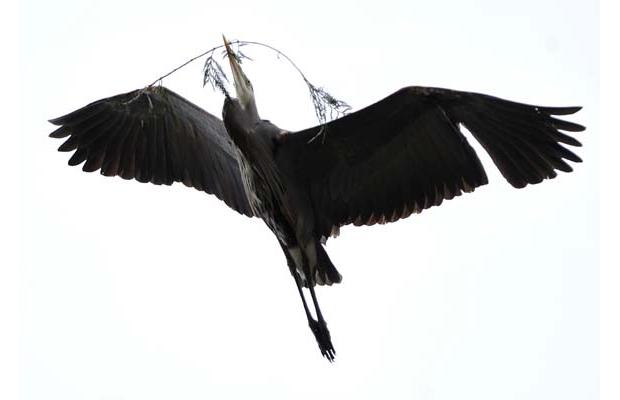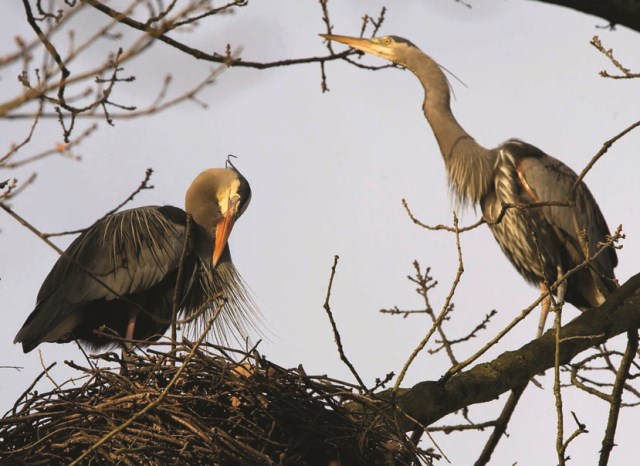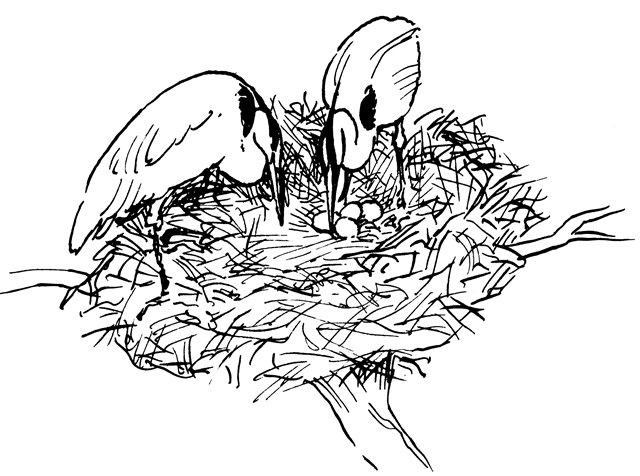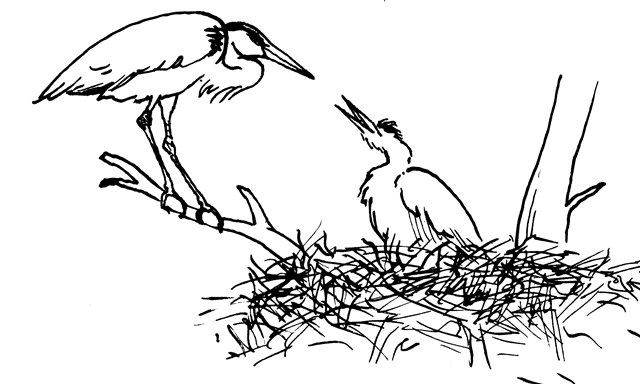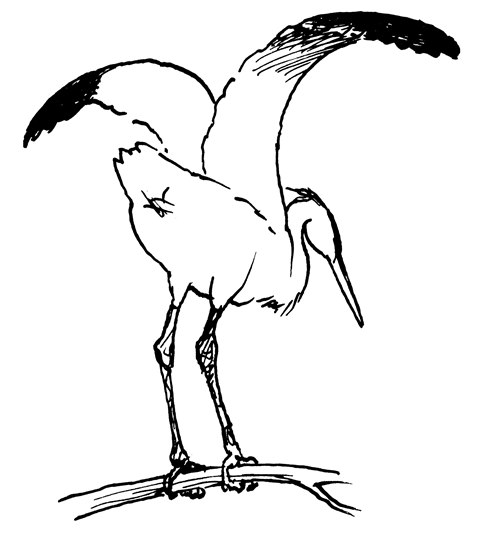Adapted from the B.C. Ministry of Environment
and The Province and The Vancouver Sun
by Nila Gopaul • Illustrations by Nola Johnston
Level 2
In BC, people can see Great Blue Herons all year.
Herons live on the coast.
They also live in the southern part of B.C.
The heron is a large bird:
- It is taller than many 8-year-old children.
- It weighs about the same as a small newborn baby.
Over 5,000 herons live in B.C.
The B.C. government protects these birds.
It also protects their nests and their eggs.
More than 100 heron nests are in Stanley Park in Vancouver.
There is also a heron park in Chilliwack.
You can watch the herons in their nests, click here.
Read the PDF. Try the Exercise.
Heron calendar
Stanley Park’s herons: Five things to know
• How big was the heron colony in 2014?
There were 116 nests. About 130 herons were born.
• When did herons first show up in Stanley Park?
In 1921, the herons moved near Brockton Point.
In 2011, they moved near the tennis courts and parking lot.
• How big are the nests?
They can be one metre wide
and 0.5 metres deep.
They are made of many twigs.
The middle of the nest is like a cup.
It is lined with soft materials
such as moss, lichens, or leaves.
• Do the herons mate for life?
No. Herons choose a new mate each season.
• What do the chicks eat?
They mostly eat small fish,
but they will also eat shellfish, insects,
rodents, amphibians, reptiles, and even small birds.
Both parents feed their babies for about 60 days.
